Essential Calculator Tools You Didn’t Know You Needed

Calculators have made progress since their inception, transforming from arithmetic tools to advanced tools capable of handling complex calculations and analyses. The evolution of calculators began with models tailored for addition, subtraction, multiplication, and division. These early calculators, bulky and stationary, were groundbreaking in their ability to swiftly calculate figures, saving time and reducing errors in math tasks.
With technology advancing so rapidly, calculators became more compact and efficient. The digital era introduced calculators accessible via web browsers and mobile devices. Various specialized calculators serve several different purposes, such as simplifying cooking methods by converting measurements and adjusting recipe quantities, aiding in financial planning, and even integrating with artificial intelligence to increase the accuracy and capabilities of online calculators. Whether you are a student, a working professional, or someone managing responsibilities, there are calculators tailored to address your exact needs.
Technology and Data Calculators
Technology and data calculators are designed to help you plan and optimize data storage. These calculators help you determine the best configurations for data storage systems that are based on various parameters like capacity, performance, reliability, and cost. For example, a RAID calculator combines multiple physical disk drives into a single logical unit to improve performance, provide redundancy, or both. Businesses can use these tools to figure out RAID setups by considering factors like available storage space resilience to faults, and performance enhancements. By allowing a comparison between RAID levels such as RAID 0, 1, 5, and 10, these calculators help IT experts in making informed choices regarding performance, storage capacity, and expenses. This ultimately boosts data security and system efficiency.
Apart from RAID calculators, various types of tech calculators focus on:
● Improving storage efficiency
● Planning capacity requirements
● Analyzing performance metrics
● Assessing costs
These resources offer valuable insights into estimating data growth trends, calculating ownership costs, and identifying possible performance limitations. By using these tools, organizations can fine-tune their storage setups to prevent over-provisioning issues and ensure that their solutions align with business objectives and financial limitations.
Graphing and Visualization Calculators
Graphing and visualization calculators are tools designed for planning and analyzing mathematical functions and equations. These devices or software applications offer graphical depictions of mathematical equations, inequalities, and statistical data, which give you a better understanding and help with interpreting mathematical ideas. For example, planning equations on a coordinate plane helps you visualize the behavior, patterns, and intersections of functions, which aids in modeling data analysis and problem-solving.
Graphing calculators come with several different features that allow for creating models or adjusting variables as well as studying resulting graphs. This makes them exceptionally valuable in both educational and professional environments. These calculators find use across various sectors and fields like mathematics education, science, engineering, finance, and economics. They improve learning and streamline problem-solving by offering quick and accurate graphical representations. Additionally, they help connect abstract mathematical concepts with real-world applications.
Graphing calculators are typically software-based formats like the Texas Instruments TI 84 Plus, handheld devices like the Casio fx 9750GII, and web-based calculators, Desmos. Depending on your needs, these calculators have a wide range of features, including programming skills and customizable graph designs.
Financial Calculators
Financial calculators perform various financial calculations and analyses that exceed the capabilities of traditional calculators. They are commonly used by finance professionals, students, and individuals for financial planning
Types of financial calculators include:
● Loan calculators: These tools can help you calculate loan payments, interest expenses, and amortization schedules for types of loans like loans, auto loans, and student loans.
● Mortgage calculators: These are specifically tailored for real estate financing. These calculators help you determine mortgage payments, compare loan terms, and evaluate potential refinancing possibilities. They often feature features for calculating home affordability and mortgage eligibility.
● Investment calculators: This assists with analyzing investment returns, comparing investment choices, and understanding the impact of variables on investment growth. They basically simplify calculations related to compound interest, portfolio assessment, and long-term investment strategizing.
● Retirement Planning calculators; These calculators support estimating retirement savings, the requirements for evaluating retirement plans, and preparing for long-term financial stability. They typically consider factors such as savings amount and the projected rate of return on investments.
Educational Calculators
Educational calculators are essential for improving learning outcomes in a wide range of subjects. They simplify calculations, offer feedback, and enable students to focus on understanding concepts rather than getting caught up in math.
These resources are beneficial for students at every level, from school to higher education, and play a key role in boosting academic success and building confidence in math and science.
● GPA calculators: Grade Point Average (GPA) calculators help students assess their performance based on individual course grades and credit hours.
● Unit conversion: Unit conversion calculators are designed to convert measurements across categories like length, weight, volume, temperature, and more.
● Equation solvers: Algebraic equation solvers aid students in solving equations or systems of equations, useful for those studying mathematics.
● Probability: Probability calculators assist users in determining probabilities for distributions and events, proving valuable for statistics and probability coursework
Science and Engineering
Science and engineering calculators are tools that help professionals, students, and researchers with calculations across various scientific and engineering fields. For instance, physics calculators help in solving problems related to motion, force, energy, and other physics concepts. They include Kinematics calculators that are used to determine displacement, velocity, acceleration, and time. Force and Motion calculators assist in calculating force, mass, and acceleration using Newton’s laws.
Chemistry calculators are used for calculations involving chemical reactions and concentrations. They include Molarity calculators that are used to determine the concentration of a solution, and Normality calculators help in calculating the normality of a solution based on weights.
Engineering calculators play a role in designing and analyzing systems and structures. Examples include:
● Structural Analysis Calculators: Used to calculate stresses, strains, and loads in elements. Fluid Dynamics Calculators: This specific calculator assists in solving for pressure velocity, and flow rate in systems.
● Thermodynamics Calculations: Used for performing calculations on heat transfer and energy conversion.Calculators, for Electrical Engineering: Calculate voltage, resistance, and power within circuits.
These tools ensure precision, which is non-negotiable in the science and engineering sectors. It is also a huge time saver and plays a significant role in boosting efficiency and comprehension in the realms of science and engineering.
Lifestyle and Personal Calculators
Tools for managing our daily lives, such as lifestyle and personal calculators, are designed to help you handle aspects of your daily routines more efficiently. These tools cover an array of functions from planning and health monitoring to organizing important life events. They simplify calculations, offering precise results that empower users to make well-informed choices.
For instance, pregnancy calculators predict due dates, and online casinos have betting odds calculators to help bettors calculate the payout of a bet. Monitor the progress of pregnancy, providing valuable insights into the baby’s growth and the mother’s well-being. Wedding budget calculators assist couples in planning and overseeing wedding expenses, ensuring they stick to their budget by tracking costs in categories. In short, lifestyle and personal calculators offer assistance for planning and decision-making processes, enhancing convenience while reducing stress.
Final Words
The widespread use of calculators in various fields highlights their significance in today’s world. Regardless of whether they’re used for educational or work-related tasks, calculators help us analyze information, make well-informed choices, and simplify operations.
Frequently Asked Questions
What is the difference between mean, median, and mode?
The mean, median, and mode are fundamental measures of central tendency used in statistics to summarize data. The mean is the arithmetic average of a set of numbers, calculated by adding all the numbers together and dividing by the count of numbers. The median is the middle value in a list of numbers sorted in ascending or descending order; if there is an even number of observations, the median is the average of the two middle numbers. The mode is the number that appears most frequently in a dataset. Understanding these concepts can be crucial when analyzing data, such as test scores or survey results, to make informed decisions. For more detailed explanations and examples, you might find it helpful to explore our comprehensive statistics and probability resources.
How do you solve systems of linear equations?
To solve systems of linear equations, you can use methods such as substitution, elimination, or graphing. For instance, in the substitution method, solve one equation for one variable and then substitute that solution into the other equation. This will help you find the values that satisfy both equations simultaneously. Modern calculators with advanced functionalities can expedite this process, especially during test preparations, by handling complex calculations and visualizing graph solutions, ensuring accuracy and saving time.
How do you simplify algebraic expressions?
To simplify algebraic expressions, start by combining like terms, which are terms that have the same variable raised to the same power. For example, in the expression 5x + 3 – 2x, you would combine 5x and -2x to get 3x, and then rewrite the expression as 3x + 3. Next, use the distributive property to eliminate parentheses, such as expanding (2 + 3x)(4) to 8 + 12x. Advanced calculators, which have evolved significantly from their early versions, can assist in these processes by accurately performing the arithmetic, ensuring the simplification is done correctly. For more detailed guidance on simplifying algebraic expressions, consider using resources like EffortlessMath’s guide on simplifying algebraic expressions.
Related to This Article
More math articles
- SSAT Middle Level Math FREE Sample Practice Questions
- How to Round Amounts of Money
- How to Compare Numbers Up to a Billion: A Step-by-Step Guide
- Definition and Properties of Inverse Trigonometric Functions
- FREE 5th Grade MCAS Math Practice Test
- How to Use Models to Decompose Fractions into Unit Fractions?
- How to Solve Word Problems of Elapsed Time
- Curved Path Dynamics: Essentials of Velocity, Speed, and Acceleration
- Top 10 5th Grade FSA Math Practice Questions
- 4th Grade MAP Math Worksheets: FREE & Printable


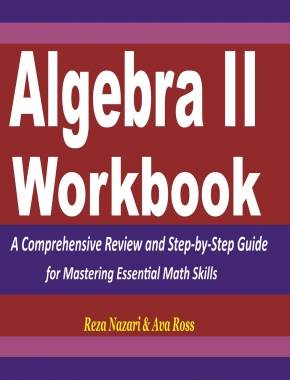

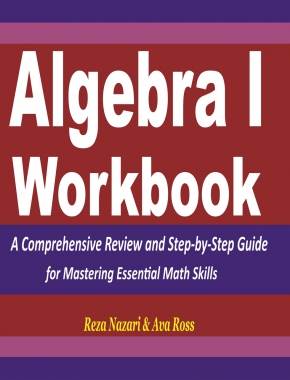
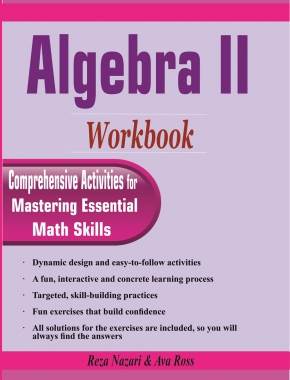
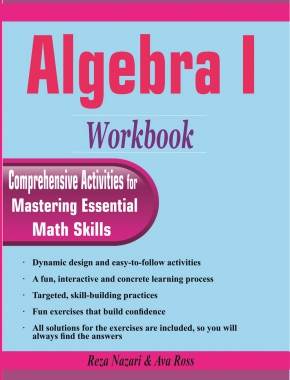
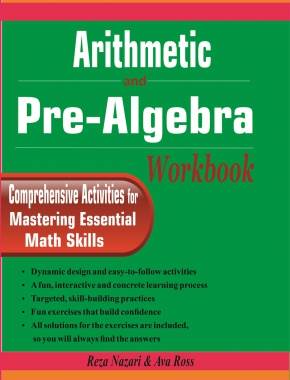
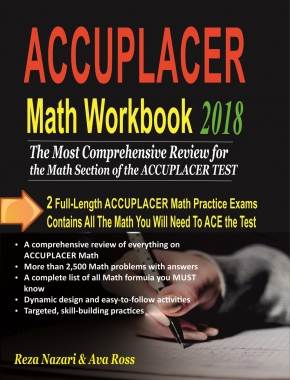
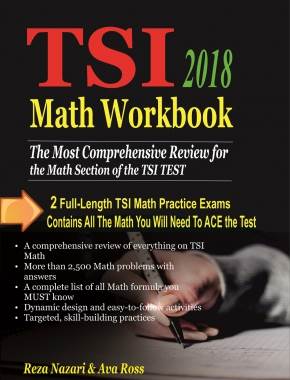










What people say about "Essential Calculator Tools You Didn’t Know You Needed - Effortless Math: We Help Students Learn to LOVE Mathematics"?
No one replied yet.